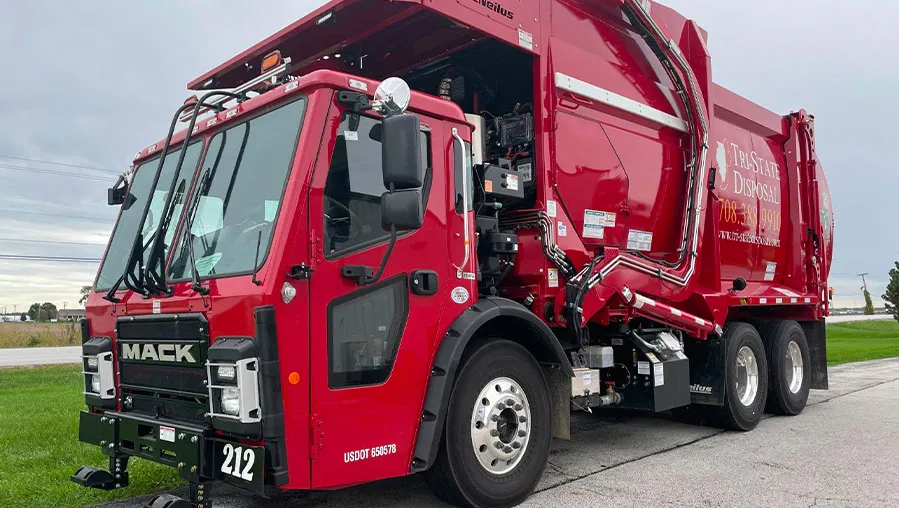Disposing of chemicals the wrong way can be dangerous for people, animals, and the environment. Many household chemicals contain hazardous substances that should never go into your regular trash or down the drain. Proper disposal of chemicals ensures safety and prevents pollution. If you’re wondering where to dispose of chemicals near you, Tri-State Disposal can help you find the nearest drop-off location.

Why You Should Never Throw Chemicals in the Trash
Many household and industrial chemicals are classified as hazardous materials. When tossed in the trash, these substances can:
- Leak into the ground: Chemicals can seep into the soil and contaminate water supplies.
- Cause fires or explosions: Flammable chemicals, like gasoline or paint thinner, can ignite if exposed to heat or pressure.
- Harm sanitation workers: Certain chemicals release toxic fumes or react dangerously when mixed with other waste materials.
- Pollute the environment: Dumping chemicals in drains or trash bins increases air, water, and soil pollution.
To prevent these risks, it’s important to learn how to dispose of chemicals properly.
Where to Dispose of Chemicals Near You
If you’re wondering where to dispose of chemicals near me, Tri-State Disposal can help you locate a designated drop-off site. Hazardous waste disposal facilities accept chemicals that shouldn’t go into regular trash or recycling.
Some common items that should be taken to a disposal facility include:
- Household cleaners (bleach, ammonia, drain cleaners)
- Paints and solvents (oil-based paint, varnish, turpentine)
- Automotive fluids (motor oil, antifreeze, transmission fluid)
- Pesticides and fertilizers (weed killers, bug sprays)
- Batteries (car batteries, rechargeable lithium batteries)
Before visiting a disposal site, check with the facility about any requirements, such as proper labeling or container guidelines.
How Hazardous Chemicals Are Disposed of at These Facilities
Once chemicals arrive at a hazardous waste facility, professionals use specialized processes to minimize environmental health impact. Here’s how different types of chemicals are treated:
- Neutralization: Some chemicals, like acids and bases, are neutralized to make them less harmful before disposal.
- Incineration: Certain hazardous chemicals are burned in high-temperature facilities to break them down safely.
- Chemical Recycling: Facilities process and reuse substances like motor oil and certain solvents to reduce waste.
- Secure Landfill Disposal: Facilities store chemicals that cannot be treated or recycled in special landfills designed to prevent leaks.
These disposal methods safely and responsibly manage hazardous waste.
Let Tri-State Disposal Help You with Chemical Waste
Proper disposal of chemicals protects your health and the environment. Don’t throw hazardous chemicals in the trash—contact Tri-State Disposal to find the nearest drop-off location.
Call us today at 708.360.7005 or visit our website to learn more about safe chemical disposal. Let’s work together to keep our communities clean and secure!



